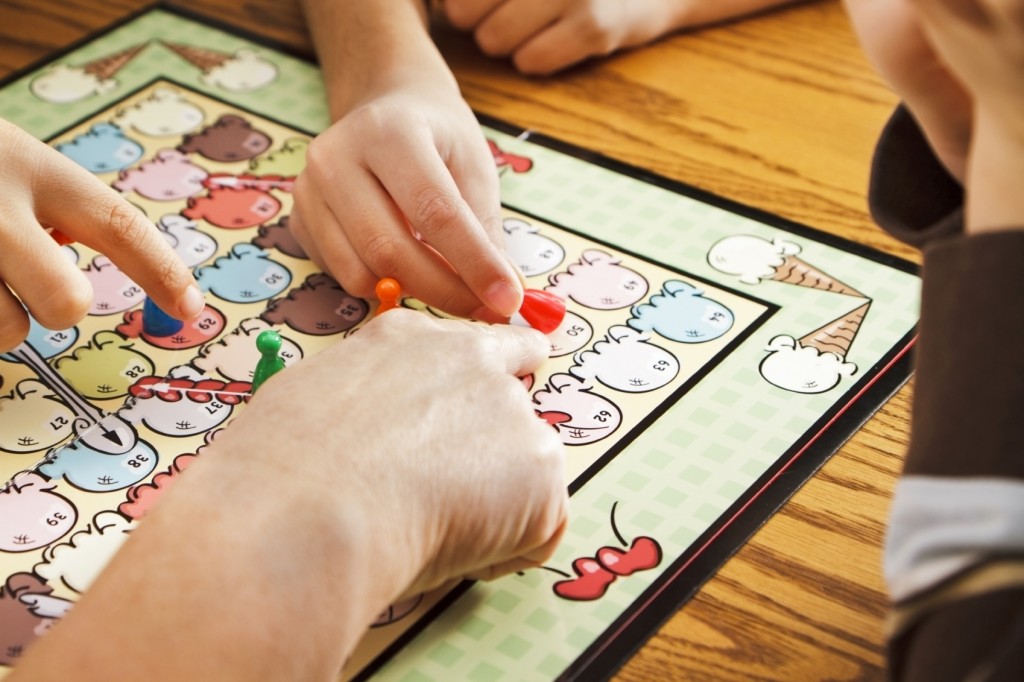In 1990, the blockbuster movie, “Home Alone” was released in theaters and took America by storm. Who could forget 8 year-old Kevin McCallister, the adorable blond-haired boy who was left behind by his family in their haste to catch a flight to Paris during the Christmas holiday rush. I am sure many of us can identify with the frantic antics of the families moving in a frenetic pace to get to their destination. Yet in their haste they forgot something…err someone very important.
I visualize that scene when I think about families in the new millennium. Parents and kids are scheduled to the max from dawn to dusk, in some cases seven days a week! Busyness is not a buzzword, it is a virus wreaking havoc in families across America. I call this epidemic, “family-on-the-run”.
Family-on-the-run describes how family life is conducted in many households today. Relationships “happen” as parents and kids run from one activity to the next. It’s like running a triathlon!
The first leg of the run begins in the morning, getting the kids off to school and parents to work. After school ends the second leg follows as kids run to one of many after school appointments: tutor, music lessons, doctors appointments, etc…
Dinner-on-the-run is common, take your pick: fast food, take-home, grocery ready-to-eat, or ready-to-serve restaurants, all designed to make things quick and easy. This is critical in order to transition to the third leg of the triathlon: an organized sporting, fine arts or school event the kids participate in. Did we forget homework? Oh yeah, that fits in somewhere in legs two or three of the triathlon, or sometimes in the morning before school starts.
Sound like your family? Guess what, you’re not alone. The starting line in the family-on-the-run triathlon is jammed packed! In case you’re wondering, other families are exhausted too. Family-on-the-run is stressing everyone. The pace is taking a toll on parents and kids. Be that as it may, it appears very few do anything to address the stress.
The reasons for this are varied, but I think one key factor is some parents want to make sure they give their kids every opportunity to succeed in life. Extra-curricular activities provide outlets for learning and developing skills and talents that will hopefully lead them to become successful adults. The idea is good, however problems emerge when families are over-scheduled. As the pace accelerates, so does the stress. Consequently, families do not develop a healthy rhythm. Sadly, problems emerge.
Here are some of the common problems we see in mental health among families-on-the-run.
- Chronic stress
- Chronic fatigue
- Early onset of anxiety-based and mood-based disorders
- Decrease in healthy communication
- Increase in family conflicts
- Lack of connectedness
- Decrease in motivation and enjoyment
Look over this list again. It’s not exhaustive, I could add more. If you can check two or more of these symptoms then it is likely that you are doing family-on-the-run. Pause for a moment and think about your family. Are you stressed out? Are your kids? Or have you found a rhythm that works? If not, here are three suggestions that can shift you from Family-on the-run to Family-having-fun…
Modify your pace
That means shift to a lower gear. You don’t have to go extreme, but can you slow things down a little bit? Look at your calendar and list of activities in your family. Is there something that can be eliminated? Are your kids involved in too many activities? If so, pare it back a little.
Create some space
 Create space for unstructured family time. Schedule it on the calendar if it will help you to do it. Unstructured time is “fill in the blank” time. Put away the gadgets! You can play a family game: hide and seek, a board game, nature walk, bonfire, etc… Why not build a snowman or go sledding? Remember? We did this when we were kids. This time can be used to relax, read, nap, or have casual conversations to check-in with each other.
Create space for unstructured family time. Schedule it on the calendar if it will help you to do it. Unstructured time is “fill in the blank” time. Put away the gadgets! You can play a family game: hide and seek, a board game, nature walk, bonfire, etc… Why not build a snowman or go sledding? Remember? We did this when we were kids. This time can be used to relax, read, nap, or have casual conversations to check-in with each other.
Have some face-time
I’m not talking iPad here. Establish one-on-one time within your family circle. Alone time with your kids one-on-one is important in developing healthy parent-child bonds. There are several creative ways to do this. Ask your child or teen. By the way, if you’re married or have a partner, be sure you fit in face-time with each other. It is one of the best things you can do for your kids. A connected “we” makes for a healthy family!
When your kids are older and share stories about the family what do you think they will remember? Parents sitting in the stands or family having fun? More often than not, they will talk about the fun things you did together. Less often will they talk about you sitting in the stands watching their games. Why? Doing things together matters more than sitting on the sidelines multitasking between watching them perform and checking your emails, texting or catching up on Facebook. Deep down inside kids and adults long for connection.
Family-on-the-run or Family-having-fun? Parents, it’s your call.

